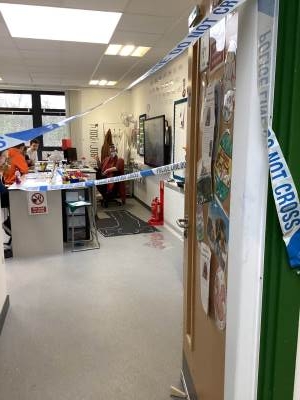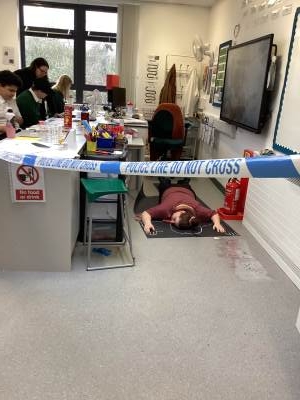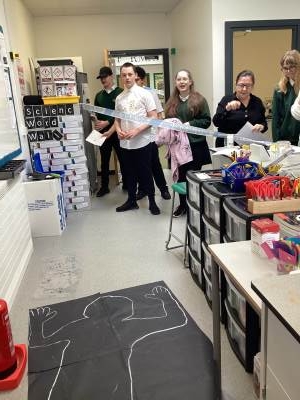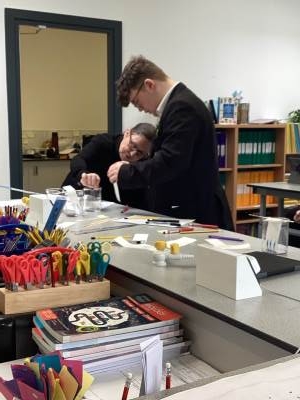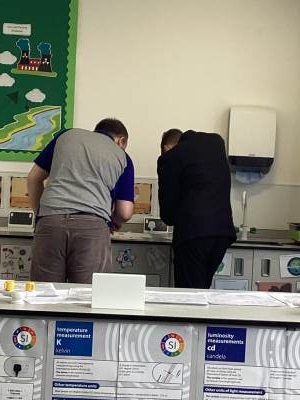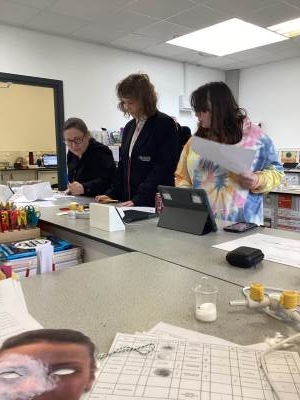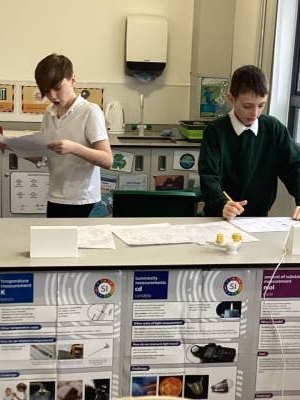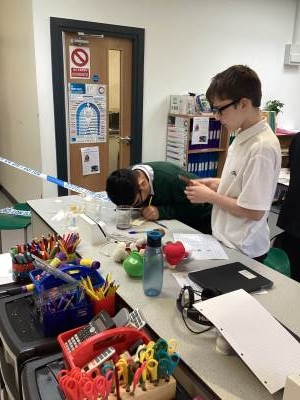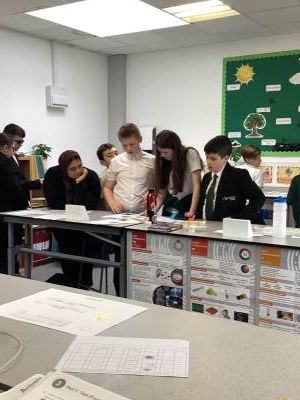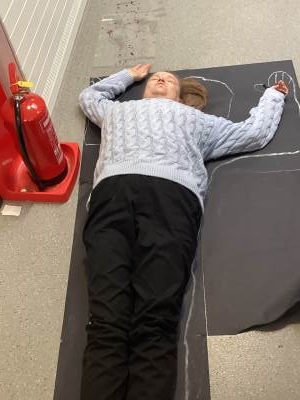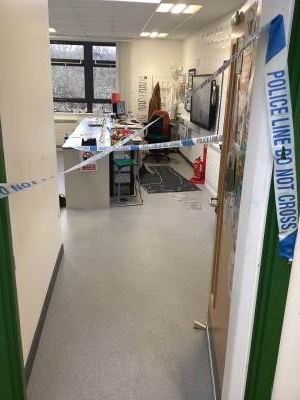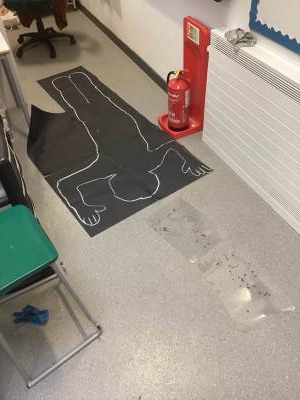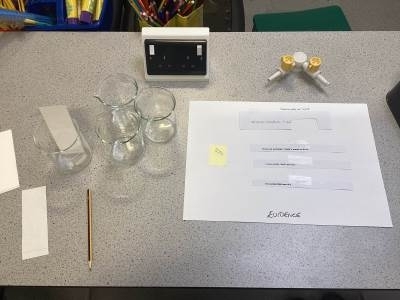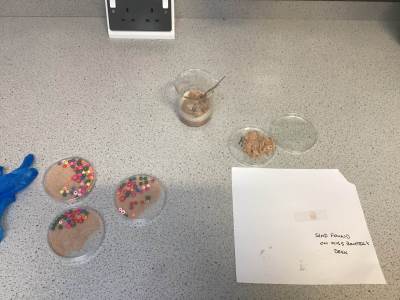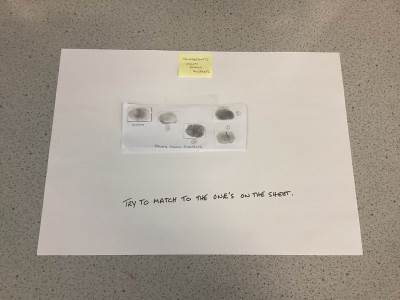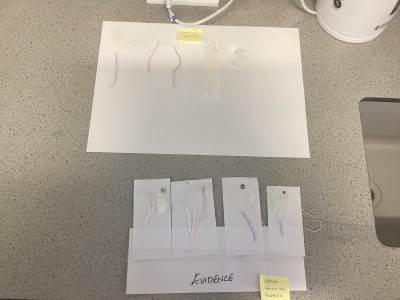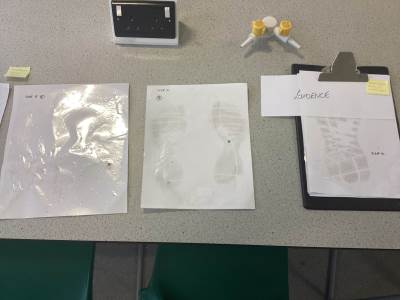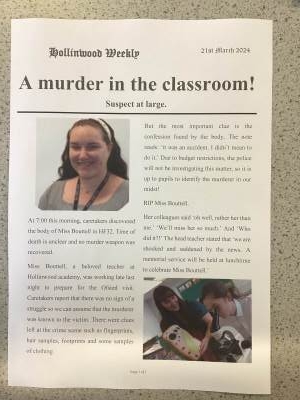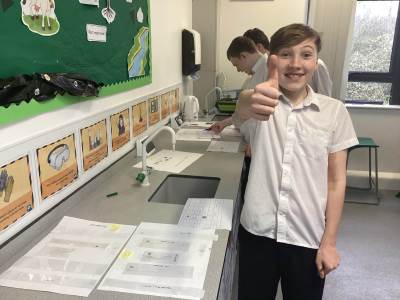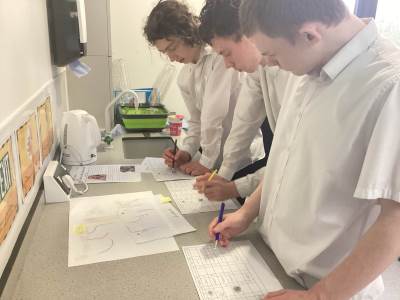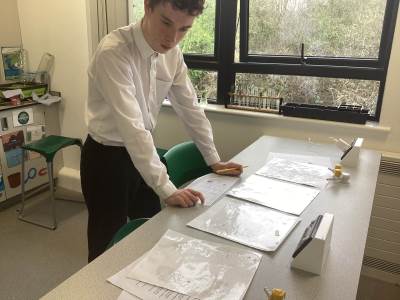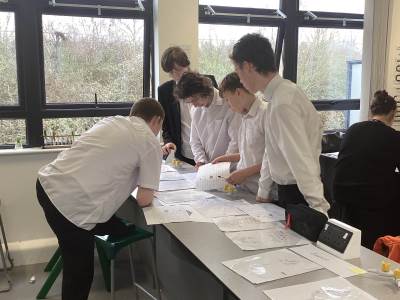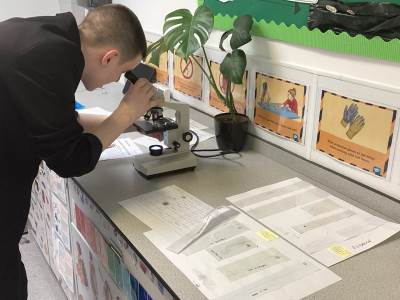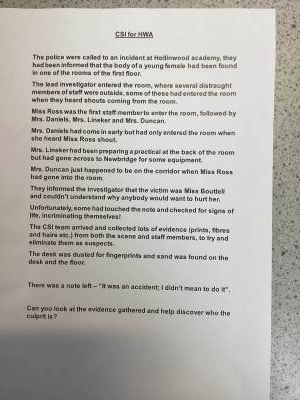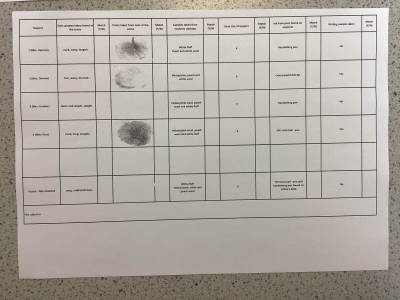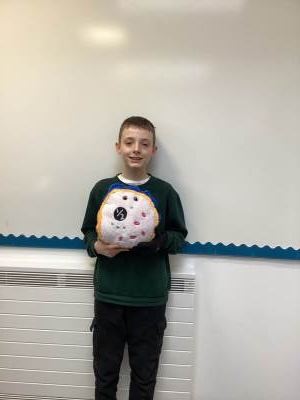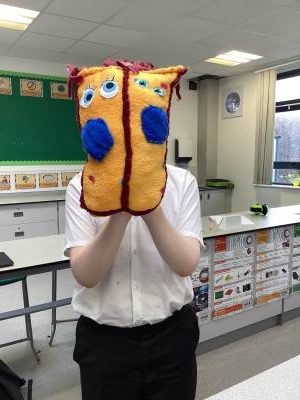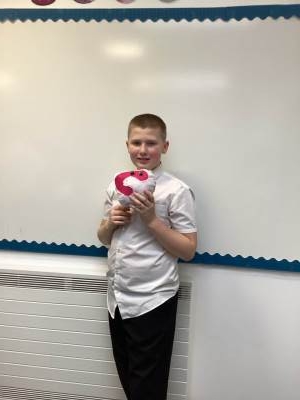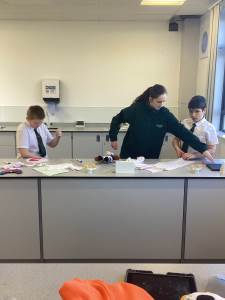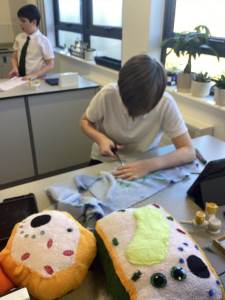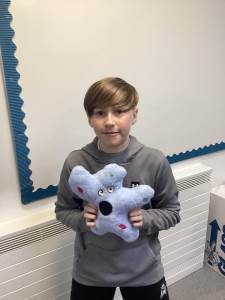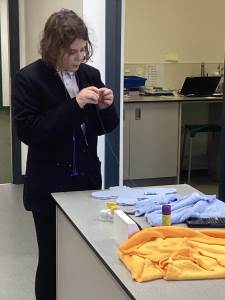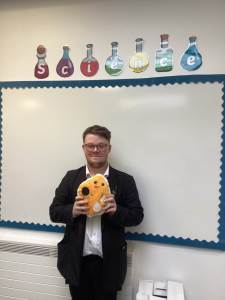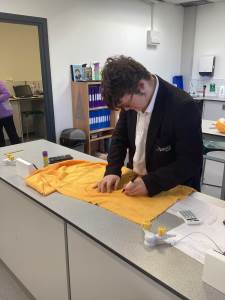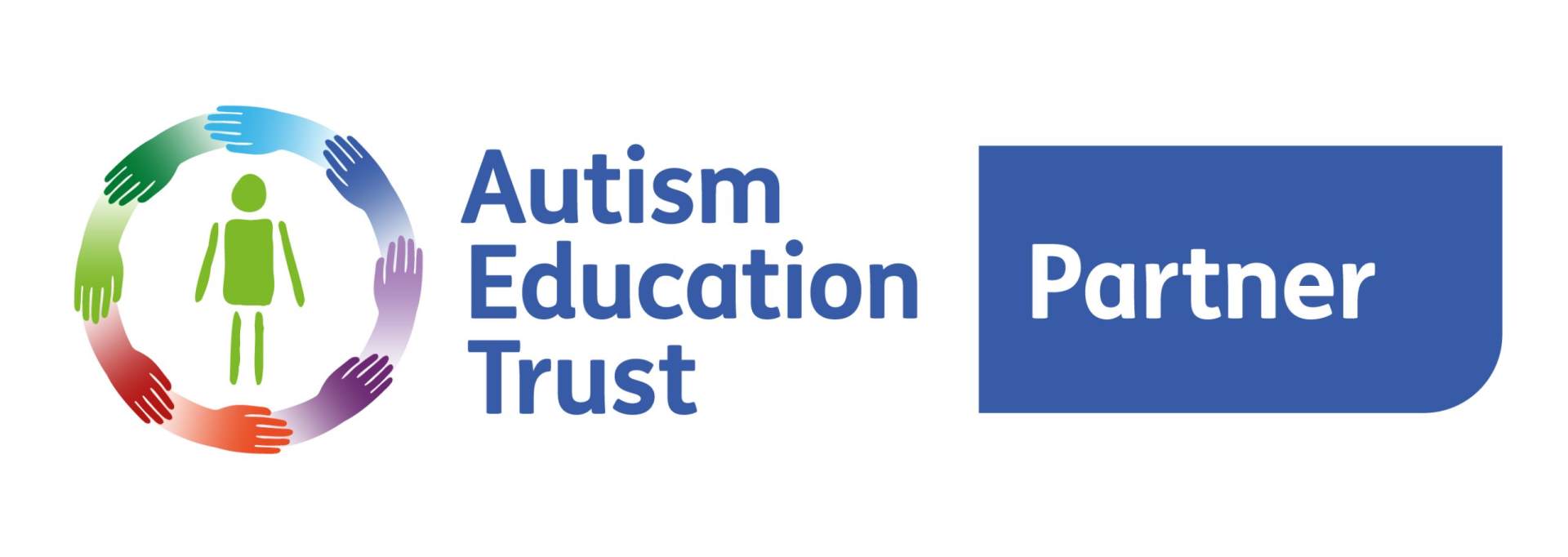Secondary Science
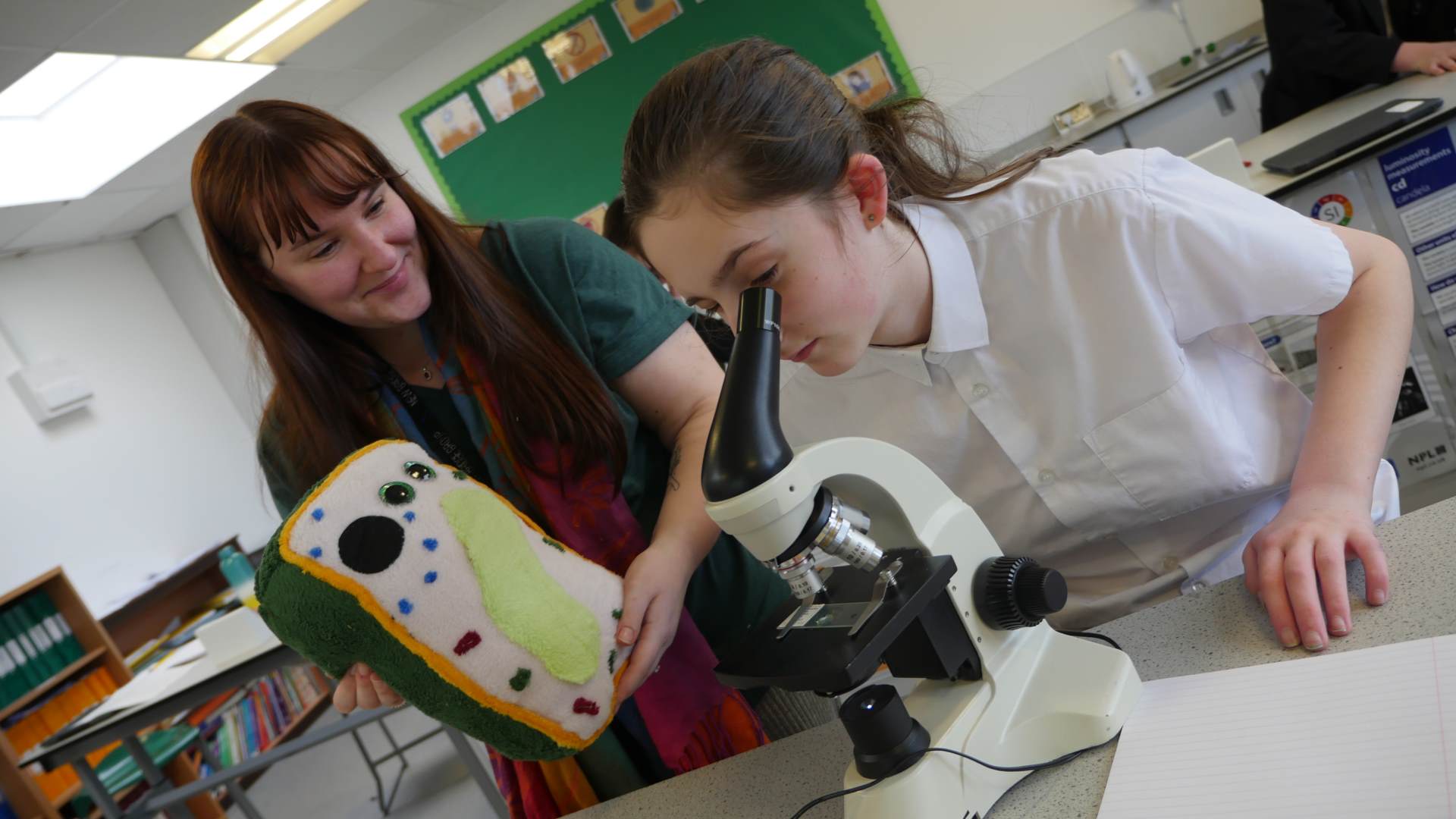
The science of today is the technology of tomorrow.
Edward Teller
Our aim in the secondary science department at Hollinwood Academy is to build on the good practice of the science curriculum taught in primary. We accomplish this by offering a 'hands-on', challenging, and dynamic 5-year science curriculum across Key Stage 3 and 4.
At Hollinwood Academy, our approach to teaching and learning is fundamentally learner-centered. We prioritise understanding the specific needs, difficulties, and learning styles of our young people, enabling us to provide the best possible support during their science lessons.
By fostering a learner-centered approach, we create an environment in which our young people feel empowered to engage actively in their learning. Through practical experiments, stimulating investigations, and exciting scientific discoveries, we aim to cultivate a genuine passion for science among our young people.
Our dedicated team of science teachers is committed to delivering a high-quality education that not only meets the requirements of the National Curriculum but also instills critical thinking skills, scientific knowledge, and a deep appreciation for the world around us.
By providing a rich and diverse science curriculum, we equip our young people with the skills and knowledge they need to succeed in their future studies and careers. We believe in nurturing the next generation of scientists, engineers, and innovators, and we are thrilled to be part of this exciting journey with our young people.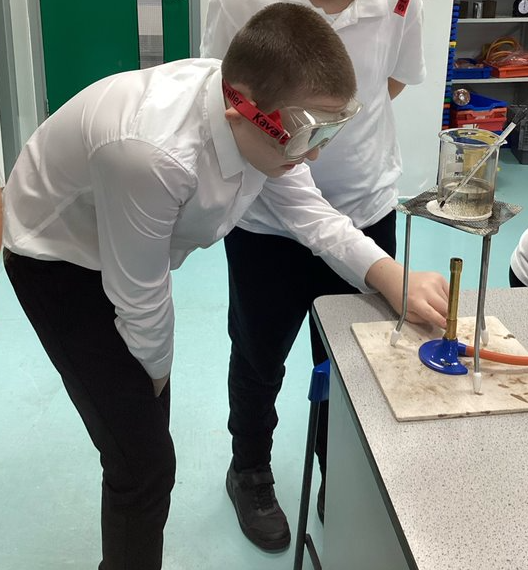
Science lessons at Hollinwood Academy
Lessons in secondary science at Hollinwood Academy are carefully planned to cater to the individual needs of our learners, while also sparking their curiosity and passion for the subject. The 5-year scheme of learning offers a plethora of opportunities for young people to engage in investigations and experiments. Our primary focus is to ensure that young people derive enjoyment from their science lessons and develop a deep understanding of the world and its workings. This principle forms the foundation for all aspects of our curriculum planning and delivery. We believe that by fostering a sense of fun and enjoyment, we can cultivate a lifelong love for science in our young people.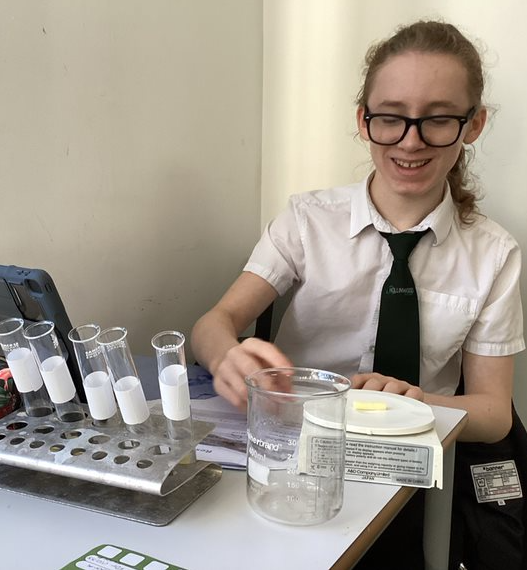
Schemes of Work
At Hollinwood Academy, Key Stage 3 learners follow a science curriculum based on the AQA Activate scheme of work (Kerboodle). This curriculum ensures a clear spiral of progression throughout Year 7, 8, and 9, and is part of a comprehensive 5-year scheme that feeds into the AQA GCSE Trilogy Scheme of Learning in Year 10 and Year 11.
The topics covered in the scheme are divided into Biology, Chemistry, and Physics, with a strong emphasis on Working Scientifically (Scientific Enquiry) embedded into every topic. Additionally, young people engage in learning tasks that involve problem-solving, with a specific focus on developing mathematical skills. The curriculum also includes appropriate tasks to promote disciplinary literacy across the Key Stage 3 Science curriculum.
The delivery of the main body of the Key Stage 3 Science Curriculum is handled by specialist science teachers who differentiate and adapt the scheme of learning to meet the diverse learning needs of each young person.
Typically, topics are taught within each year group, with an allocation of four periods per week. However, flexibility in teaching time is allowed, taking into consideration the young peoples' abilities, group dynamics, and the availability of equipment and laboratory time.
The topics covered in each year group are as follows:
Year 7: Scientific Enquiry, Movement, Particle Model, Speed, Interdependence, Acid and Alkalis, Human Reproduction, Variation, Earth's Structure, Energy, Cells, Separating Mixtures, Sound.
Year 8: Plant Reproduction, Metals and Non-Metals, Universe, Elements, Potential Difference and Resistance, Breathing, Types of Reaction, Energy Transfer, Respiration, Light, Periodic Table.
Year 9: Evolution, Climate, Contact Forces, Digestion, Magnetism and Electromagnets, Chemical Energy, Gravity, Wave Effects, Earth's Resources, Work, Wave Properties, Inheritance, Heating and Cooling.
The Key Stage 3 Science scheme of learning builds upon prior knowledge and allows for the progression of young peoples' scientific skills. By the end of Year 9, our aim is for young people to have a secure understanding and knowledge of key science concepts. This will ensure they enter the next phase of their educational journey, Key Stage 4, with a solid level of proficiency in all four areas of science: Biology, Chemistry, Physics, and working scientifically.
We follow long-term and medium-term plans, which can be viewed in detail here:
Key Stage 3 Science Learning Journey
For Key Stage 4 learners at Hollinwood Academy, the Science Curriculum is delivered according to the individual needs and abilities of each young person, as well as their aspirational destinations.
At Key Stage 4, science is typically taught in year groups, with an allocation of five periods per week. We use the Kerboodle AQA GCSE Combined Science Trilogy scheme (which includes a scheme of learning for AQA Entry level). The Key Stage 4 curriculum is delivered over a two-year timeframe, directly following the three-year Activate scheme, creating a comprehensive five-year scheme of learning. We make use of the Kerboodle platform to facilitate this curriculum.
We follow long-term and medium-term plans, which can be viewed in detail here:
Key Stage 4 GCSE Trilogy Science Learning Journey
The science schemes of work at Hollinwood Academy provide a structured and progressive approach to science education, ensuring young people develop a thorough understanding of scientific concepts and skills. By tailoring the curriculum to the needs and aspirations of each young person, we strive to promote meaningful learning experiences and prepare them for their future studies and careers.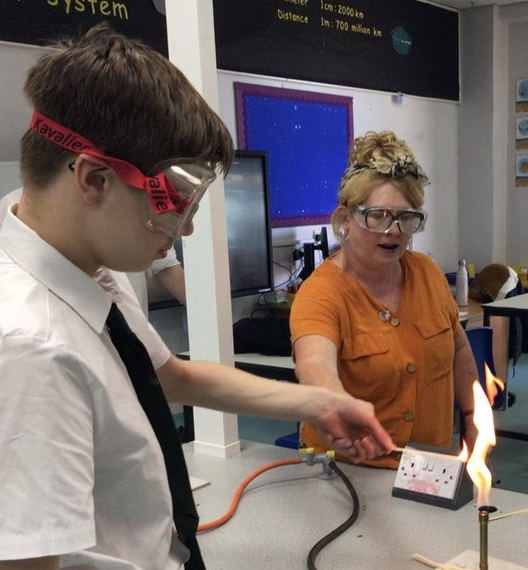
Curriculum Adaptations and Pedagogy
The curriculum adaptations and pedagogy at Hollinwood Academy is centered around meeting the unique needs and abilities of every learner, ensuring equal opportunities for academic, personal, and social development. The primary goals include:
1. Inclusivity: Adapt the curriculum to ensure that all learners have access to quality education, regardless of their individual needs.
2. Adaptive Teaching: Provide personalised learning experiences that cater to the diverse abilities, interests, and learning styles of the children and young people.
3. Progression: Foster a holistic and sequential approach to learning, allowing children and young people to build on their prior knowledge, skills, and understanding from their identified starting points.
4. Empowerment: Develop independent learners who are equipped with the skills, resilience, and self-confidence required to succeed academically and, in their future lives.
Curriculum Adaptations and Pedagogy
Assessment
At Hollinwood Academy, we follow the 2014 National Curriculum in England and employ a comprehensive approach to assessing every young person's progress in science. Our assessments are designed to align with the curriculum and are based on the Kerboodle schemes of work.
On entry into a year group or key stage, young people undergo formative baseline assessments, and the data is recorded. Starting from September 2022, these assessments will be recorded using the frameworks for Science on the Evidence for Learning APP.
Throughout Key Stages, all pupils are formatively assessed at the beginning of topics or units, and they are given summative tests in the areas of Biology, Chemistry, Physics, and Enquiry (Working Scientifically).
The science assessments include:
- Formative assessments (baseline)
- Summative end-of-topic tests from the topics mentioned above
- Level assessed investigations
- Level assessed research tasks
These assessments play a vital role in measuring our young people's proficiency in various scientific concepts and skills. By using these assessments, we ensure that our teaching remains closely aligned with the national curriculum, enabling us to identify areas where additional support or challenge may be required.
To provide individualised support, each young person has bespoke and personalised science progress targets, which we closely track. We believe in fostering a strong partnership with parents, and therefore, we share these targets with them on a termly basis via Arbor, our digital communication platform.
By adopting this rigorous and tailored approach to science assessments, we strive to ensure that all our young people in formal develop a solid foundation in science and achieve their full potential.
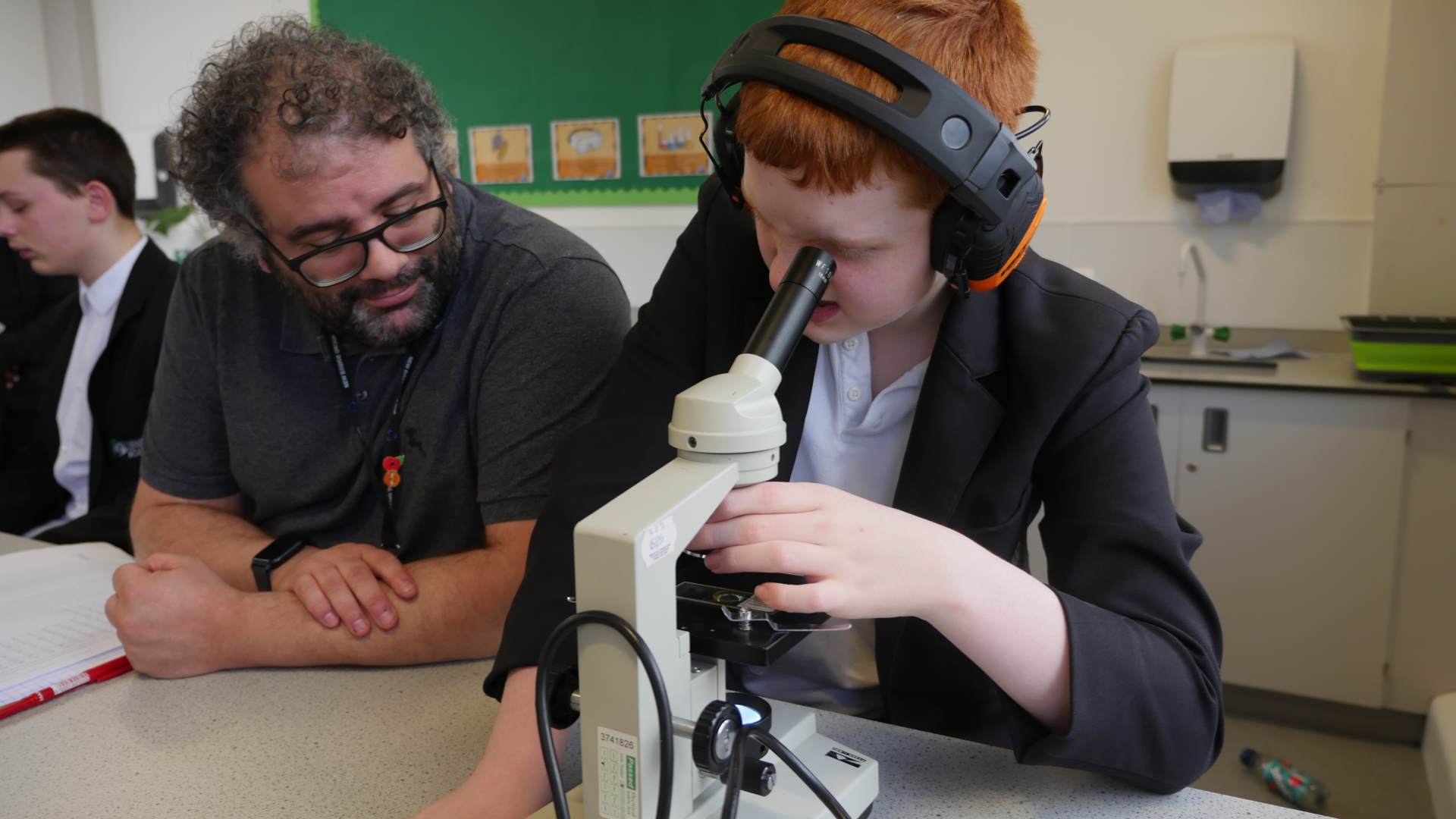
Qualifications
Hollinwood Academy is committed to providing young people with a comprehensive range of science qualifications. Young people at Hollinwood Academy have the opportunity to pursue various science pathways, enhancing their knowledge and skills.
We offer the following science qualifications to our young people:
-
AQA GCSE Science Trilogy: This qualification allows young people to explore the three main scientific disciplines - biology, chemistry, and physics - through a combined approach. It provides a solid foundation for further studies in science.
GCSE Combined Science: Trilogy -
IGCSE Single Award Science: This internationally recognised qualification focuses on developing a deep understanding of scientific concepts. It is a challenging pathway that prepares young people for advanced science education and future careers.
Cambridge IGCSE Science - Combined -
AQA Entry Level Unit Awards: These awards provide a flexible framework for assessing scientific knowledge, skills, and understanding at different levels. They recognise the achievements of young people who may benefit from a more personalized approach.
Science Entry Level Certificate
At Hollinwood Academy, we are dedicated to nurturing the scientific curiosity and abilities of our young people, helping them to unlock their full potential in the field of science.
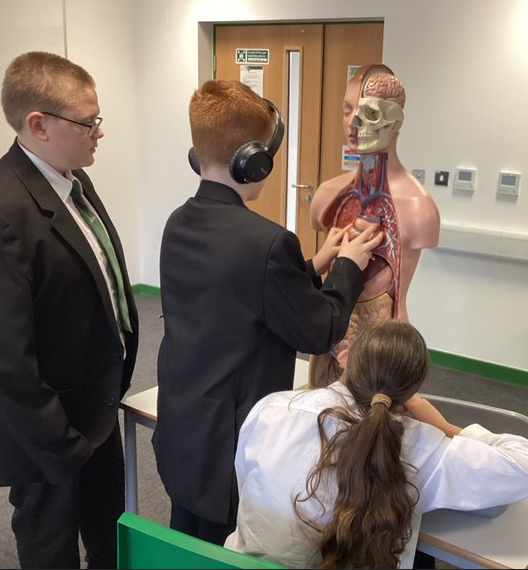
Revision Guide
Oxford Revise AQA GCSE 9-1 Combines Science: Trilogy ISBN 978-1-382-00486-2Wider Curriculum & Celebrations
Stop iMovie in Science
/i/video/20260212_120739000_iOS.mov
/i/video/20260212_120939000_iOS.mov
/i/video/20260212_121026000_iOS.mov
/i/video/20260212_121432000_iOS.mov
Science Week 2024:
**Fake News - scientific investigation**
Across the secondary corridor there has been a scientific investigation taking place to investigate “Who done it?” …. The beloved Miss Bouttell was unfortunately murdered on 20.03.2024 and it was down to years 7, 8, 9, 10 & 11 to solve the crime and apprehend the murderer.
The students had to work in groups using their scientific knowledge, investigation skills and the evidence provided to catch the murderer.
The students showed great teamwork, good communication skills and most importantly had fun working together. Well done to everyone who took part, especially those who solved the case. A big thank you to Mrs Daniels, Mrs Duncan & Miss Ross for being suspects and our lovely victim Miss Bouttell. But the credit for such a wonderful investigation goes to Mrs Linekar, who spent days creating the activity, differentiating it for each year group, and most importantly being the MURDERER.
Secondary Science Week
Science Week 2023: Science Week 2023
Science Club
Miss Bouttell is blown away by the incredible work of the Science Club this half term! They have gone above and beyond in their creativity and skills by creating, designing, cutting, and even sewing model cells. These unique and fantastic creations deserve a massive round of applause.
Not only have the students displayed their knowledge and understanding of cells, but they have also shown immense talent in their craftsmanship. It's remarkable to see such dedication and enthusiasm in action.
Well done to each and every member of the Science Club for their outstanding efforts. Keep up the exceptional work, and let's continue to explore and uncover the wonders of science together!
Science Club Spring 2024
Technology & Websites
At Hollinwood Academy, we pride ourselves on providing our learners with their own school iPads, giving them access to a wealth of additional online educational content. To facilitate learning with these devices, we have implemented the Showbie Learning platform, which allows us to ensure our young people have access to a range of digital learning resources and support materials. These include interactive quizzes, demonstrations of experiments, videos of explanations, verbal explanations, directed reading resources, and downloaded PowerPoints or slides for additional support.
The availability of various digital tools and services, such as apps, games, and websites, has allowed us to offer a tailored and diverse approach to learning. In fact, some of our learners have actively contributed to the search, testing, and selection of digital materials that suit their individual preferences and needs. This personalised approach ensures that each young person can engage with their education in a way that suits them best.Freesciencelessons.co.ukPrimrose KittenBBC bitesizeMy-gcsescience.comSeneca learningKahootNASARoyalsociety.org





